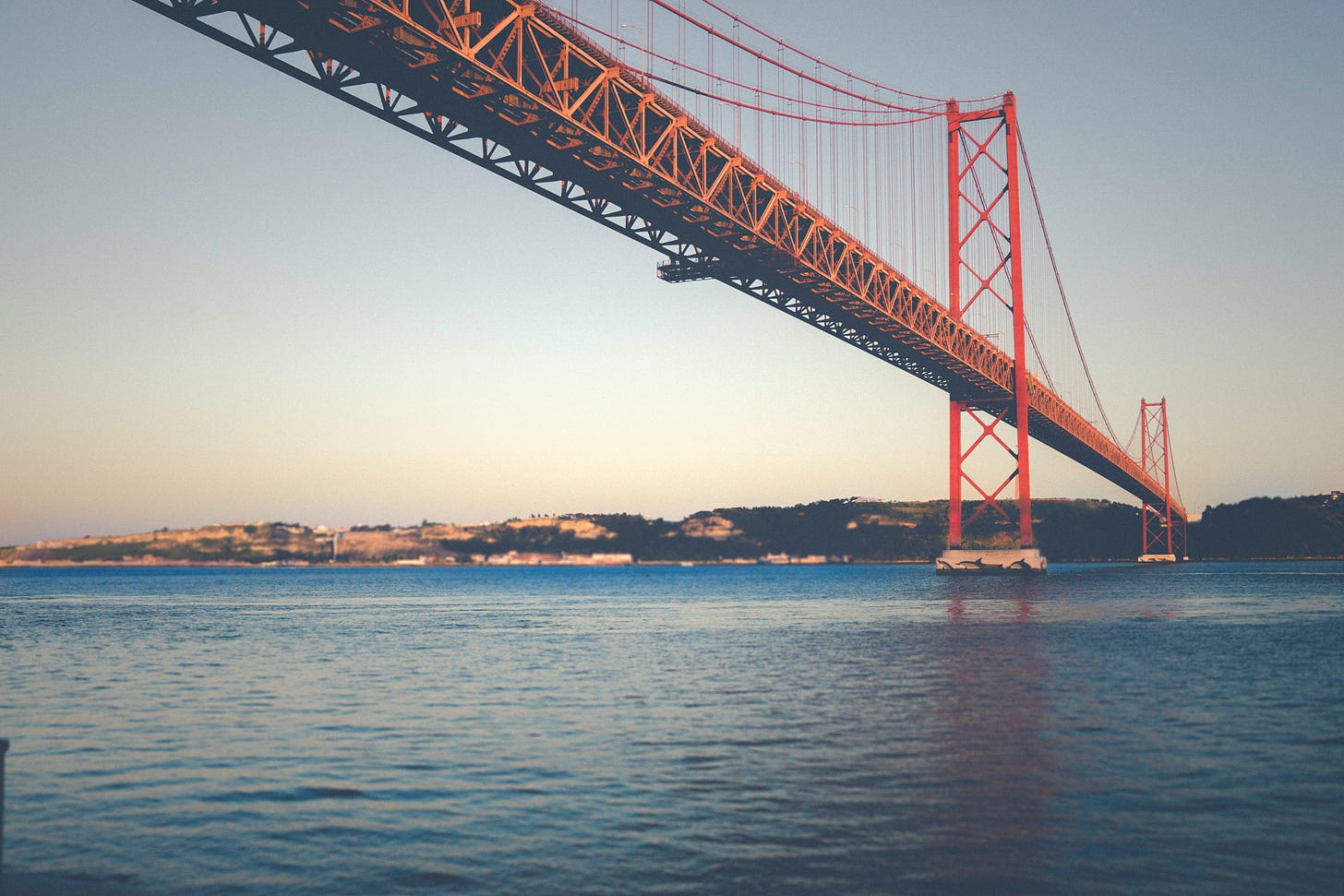5 Key Facts about the Carnation Revolution
A celebration of freedom in Portugal.

I admit that I didn’t know much about the governing history of Portugal before we moved here. I knew that during the time my grandparents lived in Portugal (early 1900’s), the country was ruled by a monarchy and in 1910, a dictatorship, but at some point, it became a democracy. Aside from that I really didn’t know much else. However, with my own country of origin currently in political turmoil, I have started to pay closer attention to the politics and governments of both my home country and my adopted country. This is how I came to learn about Portugal’s Carnation Revolution.
A pivotal moment in Portuguese history.
The Carnation Revolution was a pivotal moment in Portuguese history, marking the end of authoritarian rule and the beginning of democracy. Here are five key facts about this historic event:
1. Date and Symbolism. The Carnation Revolution took place on April 25, 1974. It gets its name from the widespread use of carnations as a symbol of the revolution. Soldiers placed red carnations in the muzzles of their rifles as a sign of peace during the mostly non-violent coup.
2. End of Estado Novo1 Regime. The revolution ended nearly five decades of authoritarian rule under the Estado Novo regime, which was led by Prime Minister António de Oliveira Salazar until 1968 and then by Marcelo Caetano. This regime was characterized by censorship, political repression, and economic stagnation.
3. Military Coup. The Carnation Revolution was primarily a military coup orchestrated by a group of officers within the Portuguese Armed Forces. Led by the Armed Forces Movement (Movimento das Forças Armadas, MFA), the coup sought to overthrow the authoritarian regime peacefully, and without bloodshed.
4. Popular Support and Non-violence. The revolution enjoyed widespread popular support from civilians, who joined the military in the streets to peacefully oppose the regime. The fact that the revolution was largely non-violent distinguishes it from many other coups or revolutions.
5. Transition to Democracy. The Carnation Revolution ushered in a new era of political and social change in Portugal, paving the way for the transition to democracy and the decolonization of Portuguese Africa. It led to the establishment of democratic institutions, the drafting of a new constitution, and free elections. Additionally, it prompted significant social reforms, including land redistribution and improvements in workers' rights.
An annual celebration of freedom.

This year, (April 25, 2024), will mark the 50th anniversary of democracy in Portugal. The day is known as "Dia da Liberdade" or "Freedom Day" and is celebrated with various events and activities including ceremonies across the country, and especially in Lisbon where the Carnation Revolution began.
There will be parades and demonstrations in many Portuguese cities, towns, and villages. People often march through the streets carrying banners and flags.
Carnations, an important symbol of the revolution, will be distributed (both paper and real flowers) as a sign of freedom and unity.
There will be cultural events, concerts, and exhibitions organized to celebrate the day. These events often reflect on the history of the revolution and the importance of democracy. Many cities and towns will have displays of fireworks.
As with any young democracy, there will also be political discussions and debates. April 25th is a day for reflection and discussion about the achievements of the revolution and the current challenges facing Portuguese society.
Portuguese women celebrate their right to vote.

Women in Portugal gained the right to vote in 1933. However, it's worth noting that this right was initially limited to literate women aged 21 and older who were heads of households or had at least secondary education. It wasn't until 1976 – after the Carnation Revolution - that universal suffrage was fully established in Portugal, granting all adult citizens the right to vote, regardless of gender or education level.
Renaming the bridge.

The 25th of April Bridge in Lisbon, Portugal, is one of the most iconic landmarks in the city. The bridge resembles the Golden Gate Bridge in San Francisco, both in its color and suspension design. It spans the Tagus River, connecting the city of Lisbon to the municipality of Almada on the south bank. Formerly known as the Salazar Bridge, it was renamed the 25th of April Bridge after the Carnation Revolution in 1974.
More mindful of freedom.
No governments are perfect wherever you live on this planet, and Portugal is no exception. It’s a young democracy still finding its way. But for me, perhaps this year more than most, I’m more mindful of the freedoms Paul and I have been privileged to have throughout our lives - both in the United States and now in Portugal.
So, on April 25th, we’ll join in the celebrations of the 50th anniversary of freedom and democracy in Portugal and with the hope for peace in the world and a better future for everyone.
Publisher’s note:
It’s been nearly two and a half years since I started this blog. So, over the next few months, I’ll be making some needed changes to Our Portugal Journey. Most of the changes will be subtle and you might not notice them such as post positions and fonts. I’ll be reviewing my older posts and revising them if necessary. I’ll be working on some special downloadable e-content, and I want to do a better job of categorizing my Table of Contents.
I’m always open to suggestions on how to make Our Portugal Journey a better resource, so please feel free to get in touch with your suggestions, criticisms, or thoughts.
I have also made changes to my subscription page. To be clear, Our Portugal Journey has no paywall – you can subscribe for free and receive all the content and I’m not planning on changing that. However, for those who wish to become a Supporting Subscriber, either on a monthly or annual basis, I have outlined those options. There is also an option for a one-time donation via Buy me a Coffee.
A special thank you to Doug and to Peter for becoming Supporting Subscribers. I truly appreciate it!
Until next time…
Obrigada!
Carol.
The Estado Novo (New State) was the authoritarian government of Portugal between the years 1933 and 1974. The Estado Novo rejected democracy and liberalism in favor of arch-conservativism and autocracy. Prime Minister Antonio de Oliveira Salazar was the supreme leader of the Estado Novo for most of its existence, with the authoritarian government collapsing only a few years after his retirement. (Source: "Estado Novo in Portugal | Origins, Dictatorship & Legacy." Study.com. December 20, 2022. https://study.com/academy/lesson/estado-novo-history-ideology.html.)



I read that during the Estado Novo it was even forbidden to have meetings on the street of 3 people! Just imagine. Salazar, an economist (!) crippled the economy by keeping the population uneducated and rural. According to Portuguese friends the modernization and giant step forward began on entering the E. U. and receiving massive infrastructure subsidies. The Portuguese are rightly proud to celebrate o dia da liberdade.
Carnations weren’t a sign of peace on that day. Women were in downtown selling flowers and they were starting giving the soldiers for free. As a joke, and because they hadn’t any other place to put the carnations they put the flowers on the pipes of the guns. It only became a symbol later